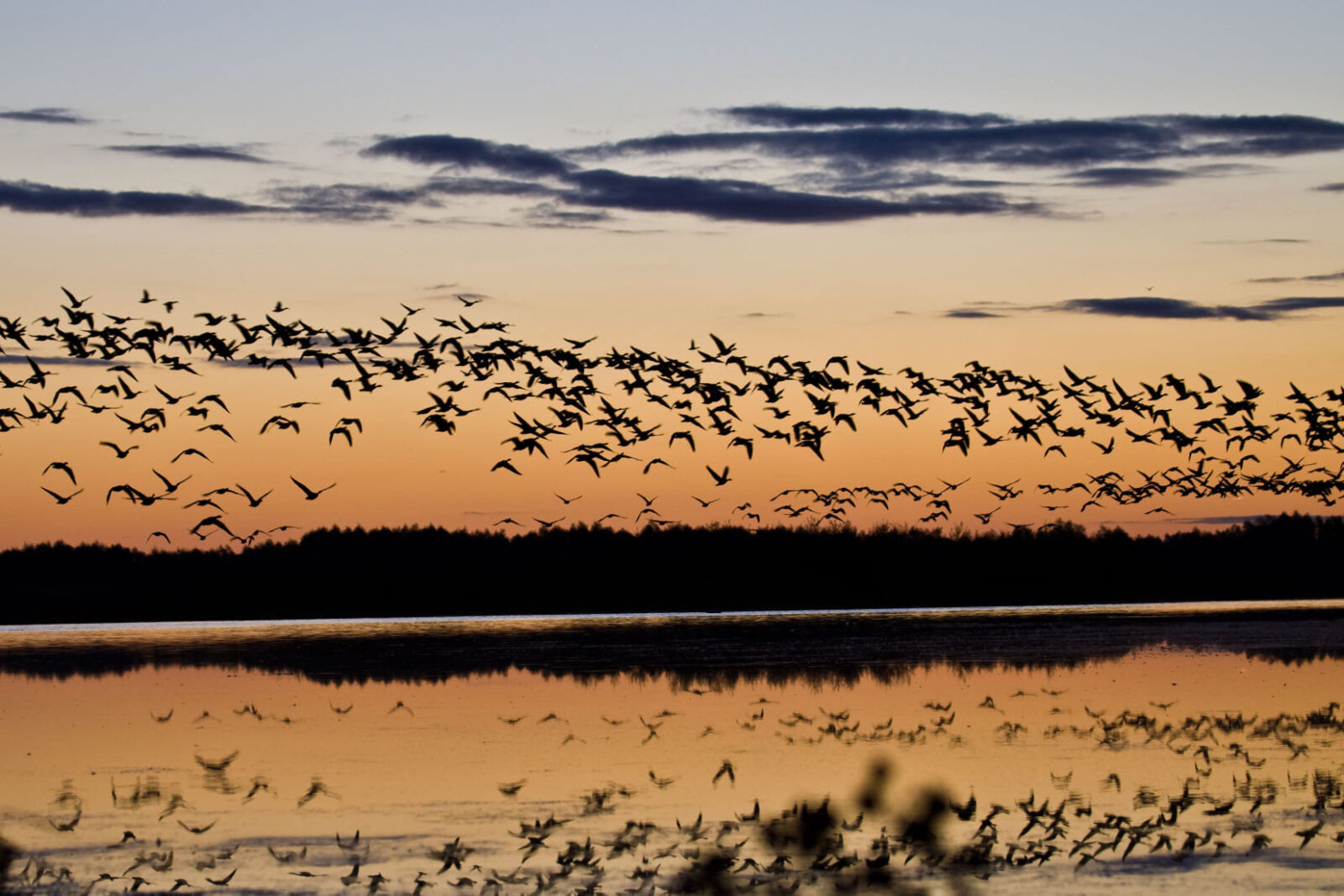
Ornitological station
The Ornithological Station of the University of Wrocław lies in the centre of the Barycz Valley, a few kilometres from Milicz. It is a perfect area for summer trips for those seeking peace and quiet. Those looking for places to swim or to practice noisy water sports will be disappointed. Barycz Valley in return offers beautiful views, clean air and close contact with nature. Diverse forests, from dry pines to beeches, oaks, wet alders and even elms. The centuries-old, eutrophic lake-like fish ponds. The agricultural landscape is a mosaic of small fields and meadows, interspersed with bushy baulks. It is here that one encounters, probably the most numerous in Poland, avenues of old oaks growing along field roads and pond dykes. In June and July, it is easiest to spot a very rare beetle, the goatsucker, on the oaks. Butterfly and bumblebee flocks fly in abundant bloom on field baulks and meadows. There is even a nature trail leading from the village of Niezgoda, devoted mainly to invertebrates.
There are more nature trails, hiking and cycling trails in the Barycz Valley. Both in forests and around ponds. Several hides and two observation towers were built along the paths, especially for bird watching, mainly in the Stawno pond complex. It is worth using them, although you should not expect too much in summer. The best time to observe large flocks of birds is in autumn.
The ornithological station consist in a former farm buildings (residential building and farm buildings) and an adjacent area (approx. 1 ha). After reconstruction it has been used by staff and students since 1973. The station is located on the edge of the bird sanctuary “Stawy Milickie” (“Milickie Ponds”) and in the very centre of the special bird protection area Nature 2000 Barcz Valley PLB 0200001 and the special area of habitat protection Ostoja nad Baryczą (The Barycz River Refuge) PLH020041. This location makes the station an excellent base for scientists and students conducting research in various fields of biological sciences. The great variety of habitats, numerous rare species of birds, amphibians, mammals and invertebrates make this area very interesting for researchers and students. The reserve “Stawy Milickie” functioning on the area of a fish farm is an example of how human economy and nature protection can be successfully reconciled.<br>The station is a didactic centre of the Faculty of Biological Sciences and also serves as a scientific research centre for employees, doctoral and master’s students of the Faculty of Biological Sciences. The staff of the station takes scientific care of the reserve and conducts year-round monitoring of selected wetland bird species in the area of “Stawy Milickie”.
The station conducts classes for students of the Faculty of Biological Sciences and pupils from Lower Silesian schools. Obligatory classes are organized here for students from the following programmes: biology, natural environment management, environmental protection, ecology and biodiversity, as well as for students of the post-graduate studies Natural Environment Management “Ekoznawca”.
For high school students we run classes on nature conservation and bird biology. Pupils get acquainted with the representatives of protected bird species, their relations with the environment and problems of their protection. On the example of Natura 2000 “Barycz Valley” and ” Stawy Milickie” fishery farm, they are shown how it is possible to combine nature protection with human economy. Of particular importance to us are the classes held for the nearby Technikum Leśne (Forestry Technical Secondary School) on protected animals associated with the forest environment and ways to reduce the negative impact of forest management on biodiversity. In recent years, we have hosted senior citizens as part of the educational project “Biology for practitioners – a programme to develop interests and stimulate educational and cultural activities for students”. The main aim of the classes was to raise awareness of, and responsibility for, the state of the environment that we will leave to future generations, and to encourage the passing on of the knowledge we have gained about human impact on biodiversity.
The current research projects focus on the reed warbler, a common bird associated with reedbeds:
- Effects of climate change on bird productivity: a meta-analysis. This is an international project co-authored by 107 scientists working on seven continents. Reed warbler data are collected from a base at the station.
- The impact of climate change on the breeding ecology of the reed warbler.
- The influence of the presence of Haemosporidia parasites on parental effort and migration parameters in reed warblers
- Effects of MHC genes on sexual selection and parental effort in reed warblers
- Skeletochronology of reed warbler chicks.
- Effects of parental effort on migration patterns of reed warblers.
Other topics:
- Influence of climate change on bird arrival phenology in Lower Silesia.
- Protection of priority bird species in Natura 2000 area – Barycz Valley.
- Stability of population structure and genetic systems of green frogs.
- Spatial distribution of reed warbler Acrocephalus arundinaceus nests and hatching losses caused by predators.
- Monitoring of some parameters of reed warbler reproductive ecology and their changes since 1970.
- Mortality of small vertebrates in monkshood and methods of its reduction in the “Milickie Stawy” reserve,
- Road mortality of grass snakes. Life expectancy of grass snakes.


















